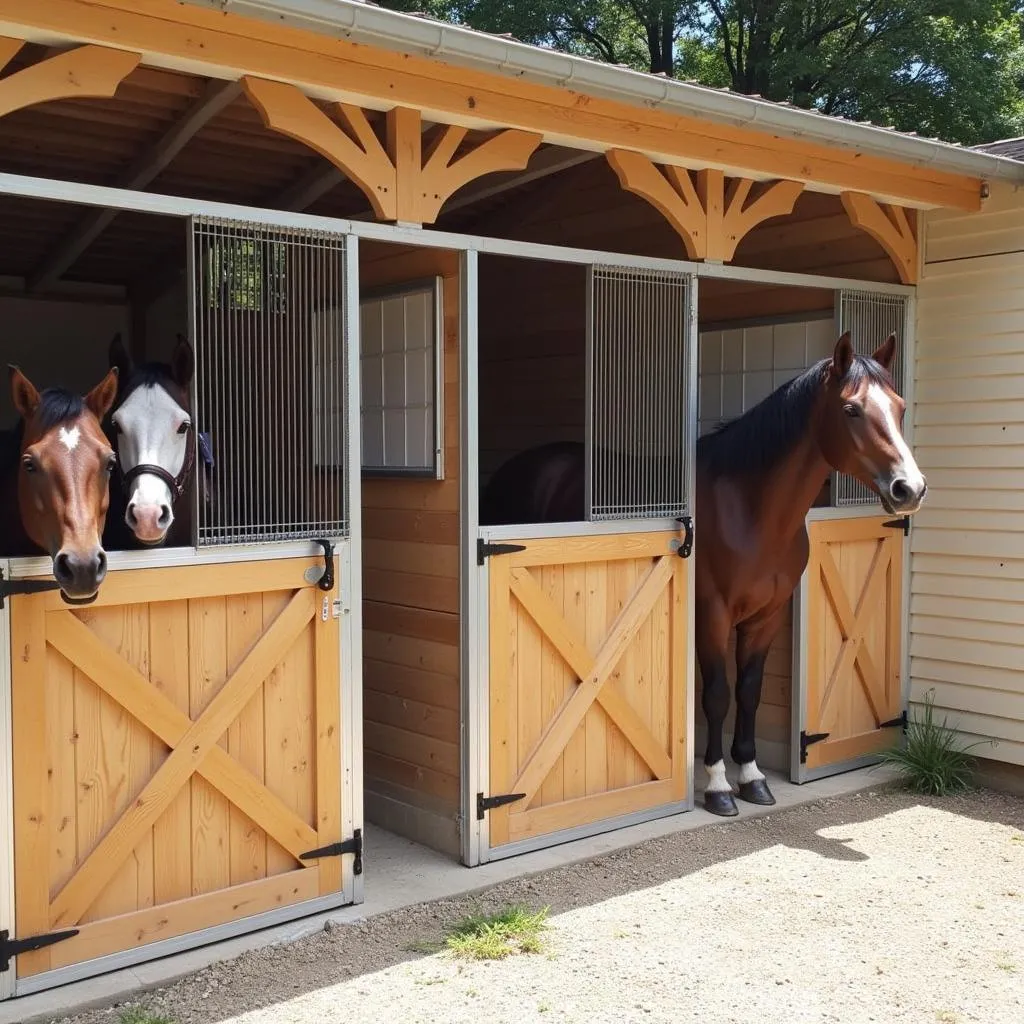Horse boarding is a popular business model for equestrian enthusiasts and professionals. However, deciding whether it’s a profitable endeavor requires careful consideration of several factors. This guide aims to provide a comprehensive understanding of horse boarding profitability, helping you make an informed decision.
The Basics of Horse Boarding Profitability
Horse boarding, in essence, involves providing a space for horses to live, including stabling, grazing, and access to facilities like riding arenas and training areas. You’ll need to consider the following key aspects:
Fixed Costs:
- Property: The initial purchase or lease of land for boarding is a significant investment.
- Infrastructure: Building stables, fencing, and other infrastructure requires substantial financial resources.
- Utilities: Electricity, water, and heating/cooling are recurring expenses.
- Insurance: Covering your property and liability is essential.
- Labor: If you don’t personally manage all aspects, you’ll need to hire staff for caregiving, maintenance, and administration.
Variable Costs:
- Feed: High-quality hay, grain, and supplements are vital to your horses’ well-being.
- Veterinary Care: Regular check-ups, vaccinations, and potential emergencies can add up.
- Farrier Services: Regular shoeing and hoof trimming are necessary for horses’ health.
- Maintenance and Repairs: Keeping your facilities in top condition requires ongoing upkeep.
Revenue Sources:
- Boarding Fees: Your primary income will come from monthly boarding fees.
- Additional Services: Offering riding lessons, training, or other services can increase revenue.
Factors Affecting Profitability
Several factors influence the profitability of horse boarding:
Location:
- Urban vs. Rural: Land costs and competition vary significantly.
- Proximity to Amenities: Convenience for horse owners affects boarding rates and demand.
Facility Size and Amenities:
- Number of Stalls: The more stalls you have, the higher your potential revenue.
- Amenities: Features like a riding arena, round pen, trails, and a wash rack increase value and attract higher-paying clients.
Target Market:
- Recreational Riders vs. Show Horses: Different types of horses have varying needs and associated costs.
- Boarding Package Options: Offering flexibility in services and pricing can attract a wider clientele.
Competition:
- Local Boarding Options: Compare pricing and amenities to remain competitive.
- Alternative Horse Care: Consider DIY boarding or other options that owners may choose.
Tips for Increasing Profitability:
- Control Costs: Efficiently manage resources and negotiate competitive pricing for supplies.
- Offer Value-Added Services: Providing training, lessons, or other services can differentiate your business.
- Build Strong Client Relationships: Exceptional service fosters loyalty and word-of-mouth referrals.
- Market Effectively: Utilize online platforms and local connections to attract new clients.
- Consider Automation: Invest in technology for tasks like scheduling, communication, and billing.
Expert Opinion:
“One of the key factors to consider is the level of service you provide. Basic boarding with minimal amenities will have lower profit margins compared to offering comprehensive care and premium facilities. It’s important to align your business model with your target market and their needs.” – Johnathan Smith, Equine Business Consultant
Is Horse Boarding Profitable for You?
Ultimately, the profitability of horse boarding depends on your specific circumstances and business model. Carefully analyze your costs, potential revenue, and the local market. Consider the following questions:
- What are your initial investment costs?
- What are your monthly operating expenses?
- What are the average boarding fees in your area?
- What are your competitive advantages?
- How much time and effort are you willing to invest?
If you’re passionate about horses and committed to providing excellent care, horse boarding can be a rewarding and potentially profitable business.
FAQ
- What are the average boarding fees? Boarding fees vary significantly based on location, facility type, and services offered. Research local options to gauge average prices.
- What is the typical profit margin for horse boarding? Profit margins vary widely depending on factors such as overhead costs, service levels, and client base. A good profit margin for horse boarding typically ranges from 10-20%.
- How long does it take to break even? The breakeven point depends on several factors and can take several years to achieve.
- Do I need to be a horse expert? Having experience with horses is beneficial but not always essential. You’ll need to be knowledgeable about horse care, facility management, and customer service.
- What are some common mistakes to avoid? Common mistakes include underestimating costs, overspending on initial investments, not having a clear business plan, and neglecting customer service.
Conclusion
Horse boarding can be a profitable business, but it requires careful planning, efficient management, and a passion for horses. By understanding the key factors influencing profitability and utilizing effective strategies, you can increase your chances of success in this rewarding industry.
 Horses enjoying a spacious stable at Justus Horses
Horses enjoying a spacious stable at Justus Horses
 A group of riders enjoying an exciting lesson in the riding arena
A group of riders enjoying an exciting lesson in the riding arena
If you’re considering entering the horse boarding industry, we’re here to support your journey. Contact us today for a personalized consultation and learn how Justus Horses can help you achieve your goals.